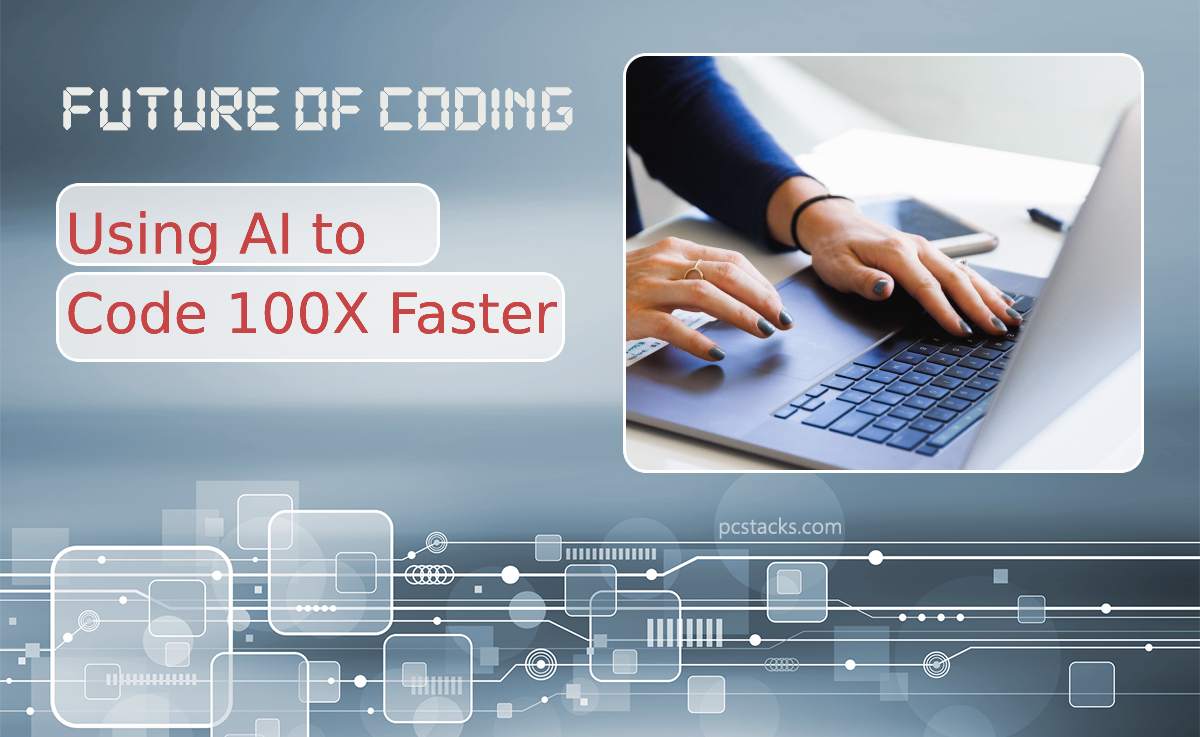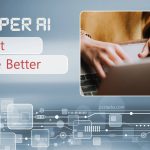The field of coding has seen tremendous advancements in recent years, driven by the rapid growth of artificial intelligence (AI) and machine learning (ML). As AI technology continues to evolve, it is revolutionizing the way we write code. This article explores the future of coding and the potential for using AI to code at a speed that surpasses human capabilities, paving the way for a more efficient and productive coding process.

Table of Contents
The Rise of AI in Coding
AI has already made significant contributions to the coding landscape. It began with AI-powered code completion and suggestions in integrated development environments (IDEs), helping developers write code more efficiently. This early foray into AI-assisted coding set the stage for the future of coding, where AI becomes an integral part of the development process.
2. Automating Repetitive Tasks
One of the key advantages of AI in coding is its ability to automate repetitive tasks. Traditionally, developers spend a significant amount of time on repetitive coding tasks such as boilerplate code generation, error handling, and data validation. AI can analyze patterns in existing codebases and generate code snippets or even entire modules, saving developers time and effort.
3. Natural Language Processing (NLP) for Programming
Natural language processing (NLP) is a branch of AI that focuses on understanding and processing human language. NLP holds immense potential in coding by enabling developers to write code using natural language instead of specific programming languages. With NLP-powered tools, developers can describe their intentions in plain English, and AI algorithms can translate these descriptions into executable code.
4. Debugging and Error Detection
Bug detection and debugging are time-consuming tasks that often require meticulous analysis of code. AI can assist in this process by automatically detecting potential bugs and suggesting fixes based on patterns and best practices found in vast repositories of code. By leveraging machine learning algorithms, AI can continuously improve its bug detection capabilities, leading to more robust and reliable code.
5. Collaborative Coding with AI
Imagine a coding environment where you have an AI assistant working alongside you, helping with code reviews, providing instant feedback, and even contributing code snippets. AI-powered tools can analyze code in real time, identify potential issues, and offer suggestions for improvement. This collaborative coding approach accelerates the development cycle and promotes higher code quality.

6. Auto-Generation of Tests
Writing comprehensive test suites is crucial for ensuring code quality and reliability. However, creating tests manually is a time-consuming process. AI can analyze code and automatically generate tests, covering various scenarios and edge cases. This significantly reduces the burden on developers, allowing them to focus more on creative problem-solving rather than mundane testing tasks.
7. Machine Learning for Code Optimization
Optimizing code for performance and efficiency is a complex task that requires deep understanding and expertise. AI, particularly machine learning algorithms, can analyze large codebases and identify optimization opportunities. By learning from existing code and its performance characteristics, AI algorithms can suggest optimizations that can lead to significant performance improvements.
8. Ethical Considerations
As we embrace AI in coding, it is crucial to address the ethical implications that come with its adoption. Developers and researchers need to ensure that AI-powered coding tools are unbiased, fair, and adhere to ethical guidelines. Care must be taken to prevent the creation of AI algorithms that perpetuate discrimination, reinforce existing biases, or compromise security.
9. Empowering Developers, Not Replacing Them
Despite the advancements in AI-assisted coding, it is essential to recognize that AI is not here to replace human developers. Instead, it is designed to augment their capabilities, enabling them to focus on higher-level tasks that require creativity, problem-solving, and critical thinking. AI can handle repetitive and mundane coding tasks, freeing up developers to tackle more complex challenges.
10. Continuous Learning and Adaptability
AI algorithms are constantly evolving and learning from vast amounts of data. This adaptability allows them to improve over time and keep up with evolving programming languages, frameworks, and best practices. Developers can benefit from AI systems that adapt to their coding style and preferences, making the coding experience more personalized and efficient.
11. Integration of AI in Education
The integration of AI in coding education can revolutionize the way programming is taught. AI-powered tools can provide real-time feedback, suggest improvements, and offer interactive coding exercises tailored to individual learning needs. This personalized approach to coding education can accelerate the learning process and empower aspiring developers to build their coding skills more effectively.
12. Addressing Security Concerns
With the increased use of AI in coding, it is crucial to address security concerns. Developers need to ensure that AI-powered tools do not introduce vulnerabilities or become vectors for malicious attacks. Robust security measures and thorough testing are essential to mitigate risks associated with AI-assisted coding tools.
As AI continues to advance, its impact on the future of coding is undeniable. AI-assisted coding tools have the potential to revolutionize the development process, making it faster, more efficient, and less error-prone. However, ethical considerations, continuous learning, and the collaboration between AI and human developers remain essential. By embracing AI as a coding partner rather than a replacement, we can unlock the full potential of AI in coding and pave the way for a more productive and innovative future.




